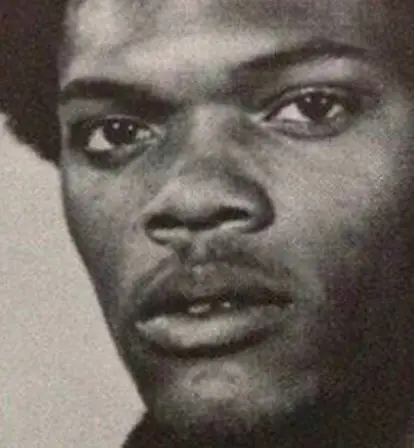After staging a two-day lock-in of King and the other trustees of Morehouse College in 1969, Jackson ended up on the FBI's watchlist.
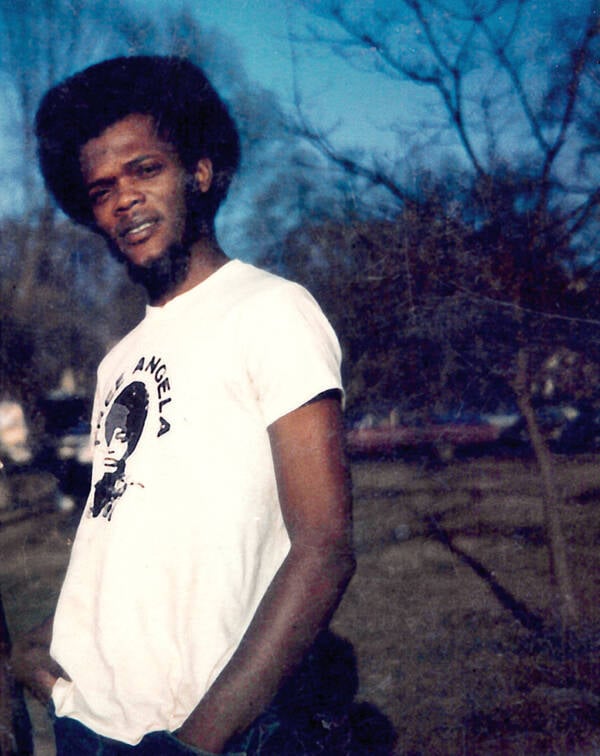
Samuel L. Jackson/Hollywood ReporterJackson proudly wears a shirt emblazoned with the face of Civil Rights activist Angela Davis in 1969.
In the last three decades, Samuel L. Jackson has turned himself into a household name. But before becoming a box office marvel, Jackson was a fledgling civil rights activist.
He was a student at the historically black Morehouse College in Atlanta in 1968 when he first became embroiled in civil rights activism following the assassination of Martin Luther King, Jr. But Jackson’s foray into protest rapidly escalated when he found himself at the center of a tense hostage situation at his university.
Before a single soul saw Jackson onscreen, he was an usher at Martin Luther King Jr.’s funeral and held King’s father captive during a university lock-in.
Becoming An Activist
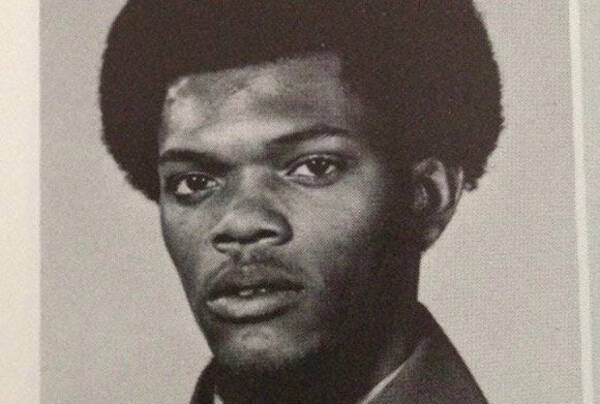
Morehouse CollegeJackson was expelled from Morehouse College for holding the school board hostage during a “lock-in.”
Born on Dec. 21, 1948, in Washington D.C., Jackson was raised in Chattanooga, Tennessee, under the stringent rules of his grandmother. Jackson’s mother Elizabeth joined them when he was 10, and though by then he’d already developed a love of cinema, the injustices of racism had also set a fire in his belly.
“I had anger in me,” Jackson told Parade magazine in 2005. “It came from growing up suppressed in a segregated society. All those childhood years of ‘whites only’ places and kids passing you on the bus, yelling, ‘Nigger!’ There was nothing I could do about it then.”
Jackson recalled how even some seemingly cherished childhood memories of his were tainted by racial inequity. He adored his local theater and was a frequent customer, but remembered that it once played a reel of Band of Angels that had been edited for Black audiences in which a scene where Black actor Sidney Poitier slaps a white woman was omitted.
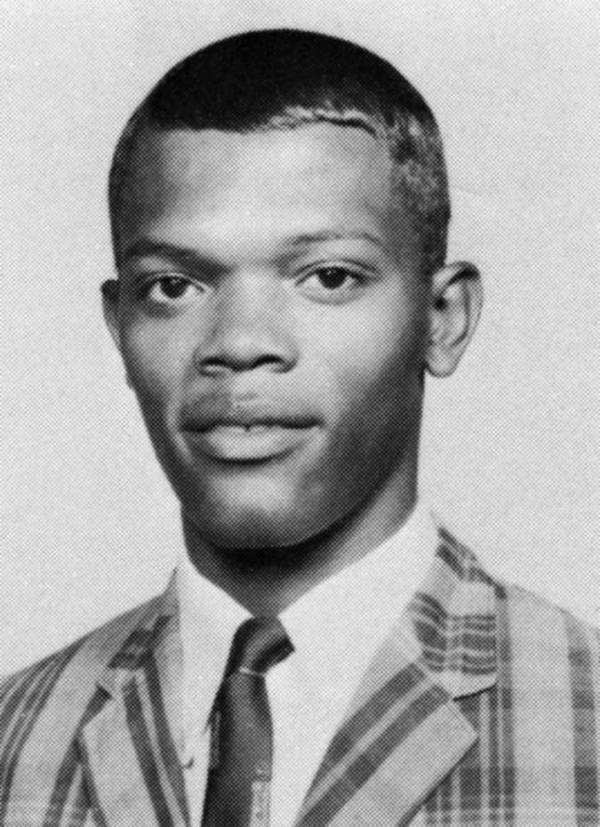
FacebookSamuel L. Jackson as a high school senior in 1965.
In college, however, Jackson was confronted with the opportunity to actually do something about the disparity he’d observed in his youth. Within his first few months at Morehouse College, Jackson was introduced to psychedelic drugs. He claimed that those experiences influenced his activism deeply.
“I was a hippie, you know? I was taking acid and listening to Jimi Hendrix,” he recalled. “I took this literature course my freshmen year, and the first thing we studied was One Flew Over the Cuckoo’s Nest. The professor said, ‘You guys have some great ideas, maybe you should try this.'”
He was a sophomore when Reverend Martin Luther King Jr. was assassinated. It was April 4, 1968, and Jackson was buying beer for campus movie night when he heard that King had been shot but was still hospitalized.
“In the middle of [the movie], this guy came in and said that Dr. King was dead and we need to do something… A couple of days later, these guys told us Bill Cosby and Robert Culp wanted us to get on a plane with them and fly to Memphis to march with the garbage workers.”
Jackson remembered how grateful he felt to be a part of something productive and non-violent, and recalled Culp and Cosby instructing him and his peers on how to properly protest. They flew back that night and paid their respects to Dr. King, who was lying at Sisters Chapel at Spelman College.
“The next day was the funeral,” said Jackson. “They needed volunteers to help people find their way around campus, and I became an usher. I remember seeing people like Harry Belafonte and Sidney Poitier. People that I thought I’d never see… The funeral was pretty much a blur.”
Especially because what happened next would come to define Jackson’s career in activism.
Jackson Holds MLK’s Father Hostage
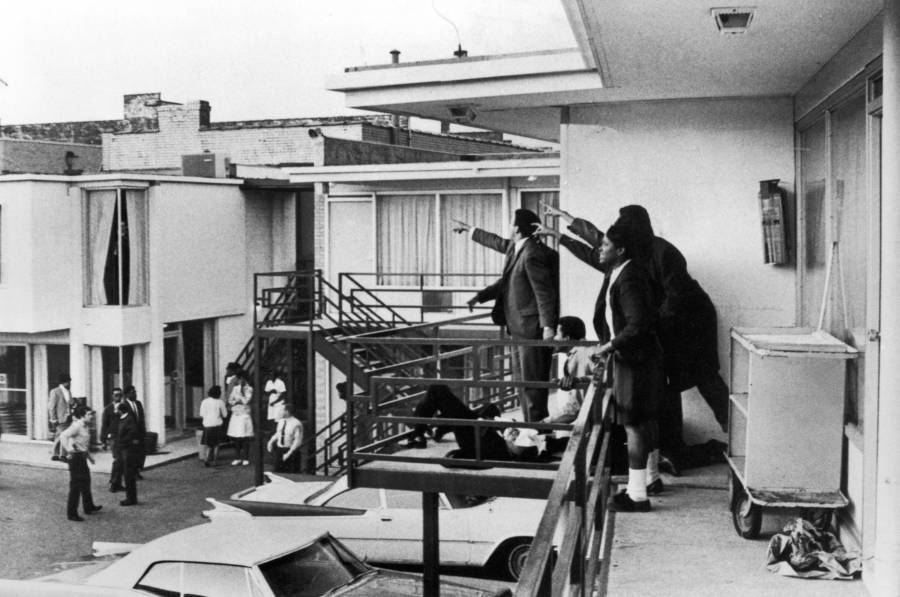
Joseph Louw/The LIFE Images Collection/Getty ImagesCivil rights leader Andrew Young (left) and others stand on the balcony of the Lorraine Motel pointing in the direction of the then-unknown assailant just after Dr. King was shot.
Like many socially-aware Black Americans at the time, Jackson worried about governmental overreach and police brutality. He’d been anti-war since his cousin was killed in Vietnam, but was more immediately concerned with the old-school ethics of his university.
As Jackson explained, “We were being groomed to be something that I didn’t necessarily want to be.” According to Jackson, Morehouse wanted its students to become lawyers, scientists, or doctors. But this wouldn’t satisfy Jackson’s dreams of actual change.
“I didn’t want to be just another Negro in the, you know, advancement of America card. We had no connection to the people that we lived around. I was skeptical of that. We didn’t even have a Black studies class. There was no student involvement on the board. Those were the things we had to change.”
Jackson went on to explain how he and a group of students did petition the Morehouse board in 1969, but, “The Black people who were around them said, ‘No way, you can’t come in here. You can’t talk to them.’ Somebody said, well, let’s lock the door and keep them in there,’ because we had read about the lock-ins on other campuses.”
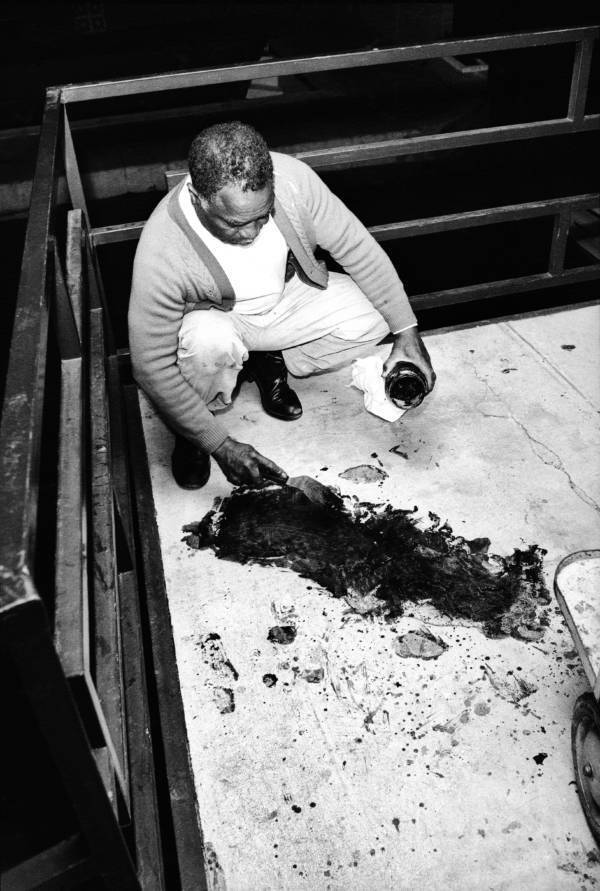
Henry Groskinsky/The LIFE Picture Collection/Getty ImagesTheatrice Bailey, the brother of the Lorraine Motel’s owner, scrapes King’s blood from the balcony on the night of his death.
For the next day and a half, Jackson and a group of students held the university board members, including Dr. King’s father, hostage. Even though Jackson knew they were breaking the law in doing so, he felt their cause was worth it. That is until Dr. King’s father started having some chest pains.
“We didn’t want to unlock the door,” Jackson recalled. “So we just put him on a ladder, put him out the window, and sent him down.”
At the start of the second half of day two of the lock-in, Jackson negotiated with the board that they wouldn’t expel them if they relented. The board agree, but then when school let out for summer that year, the board expelled them anyway.
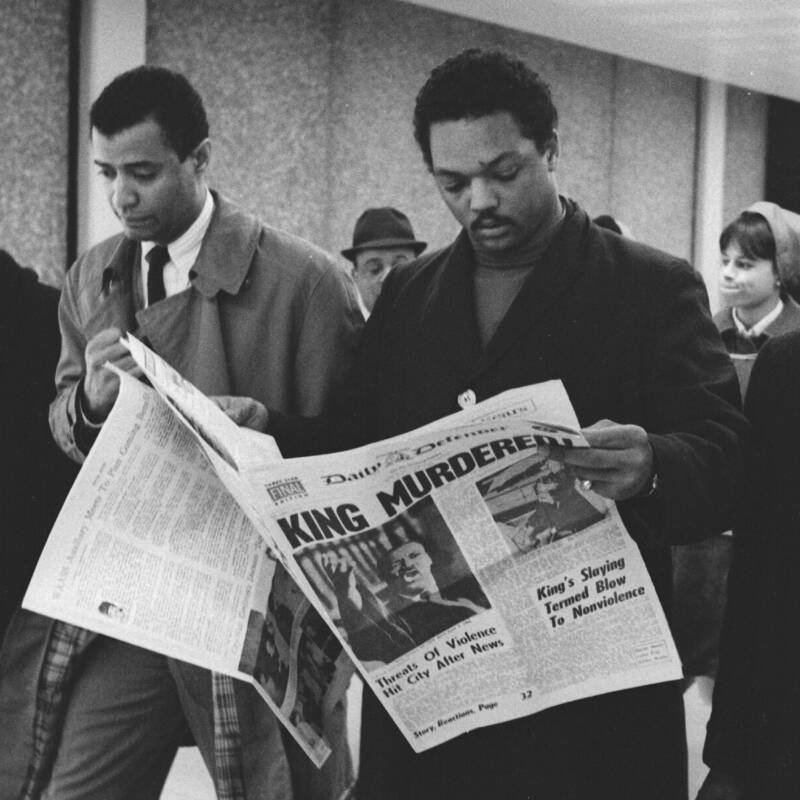
Robert Abbott Sengstacke/Getty ImagesReverend Jesse Jackson, who saw King speak the night before, reading the ghastly news of his murder at O’Hare Airport in Chicago. April 5, 1968.
That summer, Jackson became increasingly more conscious of the tense socio-political climate in America. He developed a militant readiness and a growing arsenal of firearms, which was noticed by certain entities rather quickly.
“That summer of ’69, somebody from the FBI came to my mom’s house in Tennessee and told her she needed to get me out of Atlanta before I got killed,” Jackson recalled.
“She showed up and said she was going to take me to lunch. I got in the car and she drove me to the airport and said, ‘Get on this plane, do not get off. I’ll talk to you when you get to your aunt’s in L.A.'”
It’s obvious where Jackson’s story went from there.

AFP/Getty ImagesKing intended to lead a March on Memphis to support sanitation workers who were on strike, but he didn’t live to see it happen. His widow, Coretta Scott King (fifth from right), led it instead. April 9, 1968.
Of course, countless actors have tantalizing tales about first arriving in Hollywood without a nickel to their name, but it’s hard to beat Jackson’s. From ushering guests at Dr. King’s funeral, to then holding his father hostage, being expelled and then noticed by the FBI, Samuel L. Jackson’s Hollywood origin story reigns supreme.
After learning about the time Samuel L. Jackson held Martin Luther King Sr. hostage, relive the Civil Rights movement in 55 powerful photos. Then, read about how Aretha Franklin offered to post Angela Davis’ bail in 1970.
